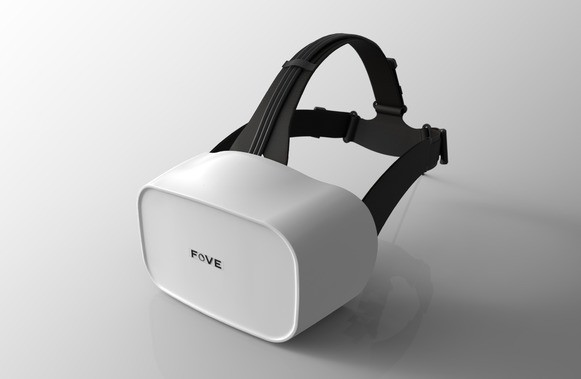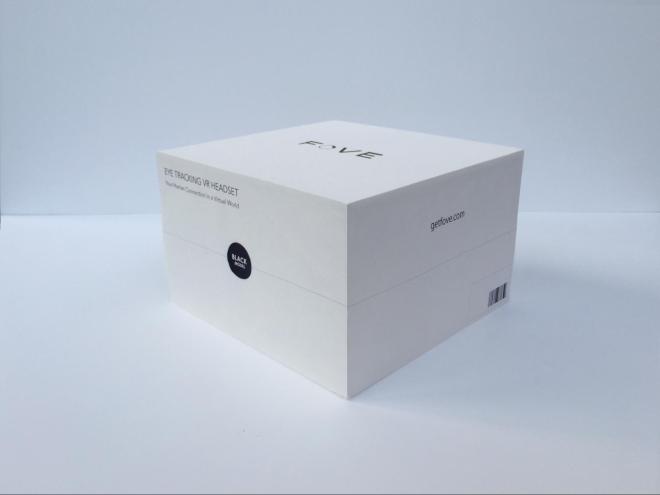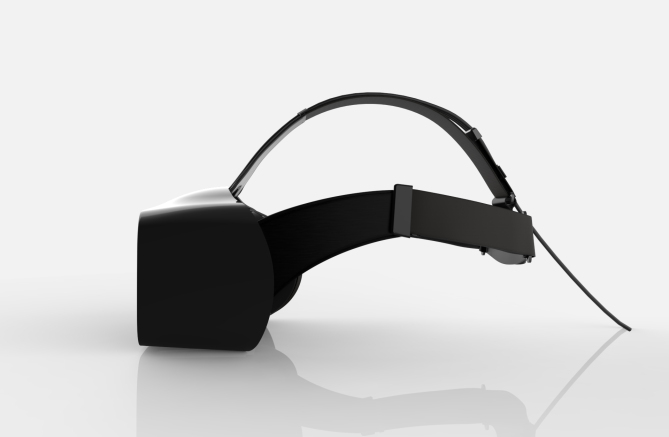Reddit Grills Fove's CTO For Details On Upcoming Fove 0 VR Headset
Lochliam Wilson, Fove’s co-founder and CTO, participated in a Reddit AMA (Ask Me Anything) discussion on November 28. The executive answered the community’s questions about his company’s upcoming eye-tracking VR HMD developer kit, Fove 0. The discussion covered a range of topics, including software compatibility, developer support, tracking, and input.
Fove 0 is the first virtual reality developer kit with built-in eye tracking sensors. The use of eye tracking in VR is widely regarded as a necessary step for advancement in VR hardware and software development. Eye tracking enables features such as Foveated Rendering, gaze-activated menus and actions, or game characters that make eye contact. In his keynote at Oculus Connect 3, Micheal Abrash, Chief Scientist at Oculus, posited that eye tracking in VR still requires years of development, but Fove Inc. disagrees. The company is readying its first batch of eye-tracking Fove 0 headsets for delivery this year.
The Fove 0 headset isn’t a consumer product, but Wilson said the developer kit is “a high-end product, somewhere between the DK2 and CV1 on the Oculus scale.” The display in the Fove 0 headset offers 40% higher resolution (2560 x 1440) than the Rift and Vive, though it “runs at 70fps instead of 90.” Despite the lower refresh rate, the motion to photon latency of the Fove 0 headset is low. However, he noted that third party compositors, such as Valve’s OpenVR, could add additional latency.
Supporting Open Standards
Fove Inc. is “doing [its] best to support open standards,” said Wilson. “Porting is easy, but mainly for seated experiences. If you control the code base, it’s super simple. If it works on OSVR or OpenVR, it should work with our system.”
Reddit user coffincolors asked Wilson if Fove had “spoken with any triple A or indie developers/publishers” regarding the integration of eye-tracking technology into existing or future content. Wilson replied, “We have... I can say some of them are in Japan and are awesome. I can't say who, though ;).” He did say that “30 game companies are currently evaluating Foves.”
Scott Harper, Fove’s Creative Director, chimed in and added: “But as a life-long gamer and startup dev, I've been a bit humbled and honored by some of the company representatives I've been able to meet with!” It would appear Fove still has some cards up its sleeve for a future reveal.
On Tracking
During the Kickstarter campaign that Fove ran to fund its headset, the company received additional funding from Samsung Ventures. Fove announced that part of that funding would go towards adding Valve’s Lighthouse technology to the Fove headset. Unfortunately, Valve was too slow to get the Lighthouse licensing program up and running, so Fove ended up dropping Lighthouse for its own in-house solution.
Get Tom's Hardware's best news and in-depth reviews, straight to your inbox.
“We are shipping with OSVR style cameras for seated positional tracking,” said Wilson. “Room tracking definitely seems possible. Our position tracking is looking really responsive and more robust every time I peek over at that side of the office, and I understand it wouldn't be too difficult to incorporate a second camera in the future.”
Room-Scale Doesn’t Mean Hand Tracking
Fove’s in-house spatial tracking system may be capable of using multiple cameras for room-scale tracking, but the company doesn’t have a solution for hand tracking, which Wilson admitted leaves him worried. Lighthouse would have opened the door for any of the myriad accessories coming from the over 300 companies that signed up for licensing.
As it stands, Fove must develop its own hand controller solution that is compatible with its head tracking system or pivot back to Lighthouse for future generations of Fove hardware. Wilson said Fove isn’t in a position to target a consumer product yet, but “if or when [it is], there is a strong chance that it will include Lighthouse and [its] own controllers.”
What About Mac Users?
If you’re wondering if Fove will work with a Mac, the short answer is: maybe. “It should be possible. Our Mac SDK is working in-house,” said Wilson “We can't get direct control of the GPU to make an ultra-low latency experience, though.”
System requirements are a bigger problem concerning Mac support. "I don't think any MacBooks meet our minimum specs, so there's no guarantee of performance at all," said Harper. "If you want to try anyway, your mileage will vary significantly. I suspect you may not be able to use direct mode at all, which means dealing with extended mode (which can be bothersome and adds about a frame or two of extra latency for the round-trip)."
Future Developments
Reddit user Musichead2468 asked Wilson where he sees the VR industry going in the next five years. Wilson shied away from speculating where the hardware market would lead, but he suggested that VR and AR will become a “major part of professional life.”
Wilson didn’t want to speculate about the industry as a whole, but he did discuss some of the work that Fove’s researchers are doing.
“Our face tracking tech will be pretty cool,” said Wilson. “It’s in early R&D now, but we expect to see VR be used for remote meetings even when it is ready. For gaming, it is going to be fun. It is, of course, going to take a long time to perfect, but even the initial demos will be highly compelling. We will start with simple avatar control and then move on to more complicated things such as natural looking lip-synced speech.”
Fove Needs Support
The Fove eye tracking HMD is poised to revolutionize an industry that is still in its infancy, but the company can’t do it alone. “We still need as many devs as possible to buy Fove 0 to keep us going!” said Wilson.
The Fove eye-tracking HMD is available for pre-order for $599 from the company's website. Pre-ordered units will start to ship in January.
"Kickstarter and pre-orders use the same hardware. We have passed FCC and all relevant certification. Units are starting to ship from next month," said Wilson. "We are shipping pre-orders in January!"
Kevin Carbotte is a contributing writer for Tom's Hardware who primarily covers VR and AR hardware. He has been writing for us for more than four years.


